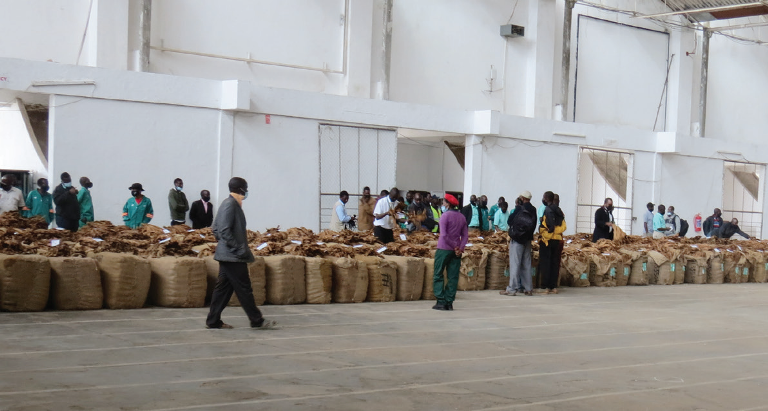Think-tank touts research for growth
Local think tank, the Mwapata Institute, has touted the power of systematic research to drive Malawi’s drive to diversify the local economy and identify viable and productive value chains to ease the country’s dependence on tobacco.
To date, tobacco has remained the country’s top foreign exchange earner, contributing about 60 percent to the country’s foreign exchange earnings, 15 percent to the gross domestic product and sector employs millions of people directly and indirectly.
Over the years, several value chains, particularly macadamia, groundnuts and soya beans have shown remarkable potential, but their earnings are still significantly lower than those accrued by tobacco.
Mwapata Institute executive director William Chadza has urged key stakeholders to leverage the research the institution has conducted and published over the years and use it to inform government strategies and policy direction on agricultural diversification.

In an interview, he said: “Malawi needs to find an alternative to tobacco. We need to diversify our [Malawi’s] sources of forex and we have been doing research in that area. Our research is evidence-based and practical, as such, could provide some useful guidance to policymakers and their implementing partners.”
Mwapata Institute, a partner in the National Planning Commission’s (NPC) National Research Agenda (NRA) launched in March last year, has in the past collaborated with renowned institutions such as the International Food Policy Research Institute (Ifpri), among other partners to research on alternative value chains and the Affordable Inputs programme.
The Institute partnered with the government to develop a country position paper on how the local farmers can integrate good husbandry practices to optimise the use of fertiliser and improve soil health to boost the performance of the agricultural sector–the mainstay of the country’s economy.
In an earlier interview, NPC director of knowledge and learning Joseph Nagoli, said the research that the Mwapata Institute and its partners will be central to operationalising pillar 1 of the Malawi 2063 and its first 20-year implementation plan (MIP-1).
He said: “The applied research outlined in the NRA is formulated to provide solutions to challenges likely to face the realisation of the Malawi 2063 first 10-YearImplememtation Plan (MIP-1) two milestones of graduating the economic to a middle-income status and meeting most of the Sustainable Development Goals.”
“It is already aligned to the focus priority areas for immediate adoption.”
The local think-tank’s research on agricultural value chains has been used by other stakeholders including the United States Agency for International Development and the Malawi Value Chain project to promote the banana, macadamia, mango and soya beans as potential export earners.
Data from the World Bank shows that imports of soya beans have grown from a paltry $500 000 in 2913 to a respectable $133 million in 2021, equivalent to 30 percent of tobacco exports. In contrast, Malawi’s other traditional exports sugar and tea only accounted for 17 and 16 percent of tobacco exports, respectively.
Malawi is also set to become the world’s seventh exporter of Macadamia following projections that the country would have 100 000 hectares of planted macadamia nuts by the end of 2023.
Soy bean and macadamia were widely touted as potential top forex earners in a report titled ‘Prioritising Policies for Driving Inclusive Agricultural Transformation in Malawi’ the Mwapata Institute jointly published with Ifpri, the Alliance for Green Revolution in Africa and Bureau for Food and Agricultural Policy.





